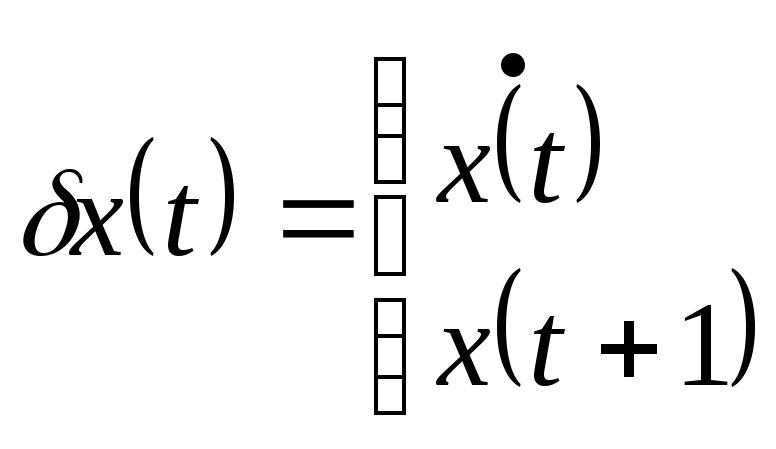
Journal of ELECTRICAL ENGENEERING, VOL. 59, NO. 6, 2008, 317-321
Output feedback controller design: non–iterative lmi approach
Vojtech Vesel´y — Danica Rosinov´a
The paper addresses the problem of output feedback controller design for linear continuous and discrete-time systems using non-iterative linear matrix inequality (LMI) procedure with guaranteed cost. Numerical examples are given to illustrate the effectiveness of the proposed methods.
K e y w o r d s: output feedback controller design, LMI
1 Introduction
The static output feedback problem is one of the most important open questions in control engineering, [13].Several solutions to this problem are available. The necessary and sufficient conditions for static output feedback stabilizability of linear continuous or discrete-time systems are given in [6] and [10] with iterative procedure to output feedback controller design. An approach based on linear- quadratic regulator theory applying Lyapunov results to output stabilization was presented in [7] for continuous-time systems leading to an iterative solution of three coupled matrix equations. Iterative LMI based output feedback controller design using structurally constrained state feedback approach was developed in [14]. Output feedback stabilization of discrete-time systems employing LQ regulator theory [9], [8], [5] can be found in [3]. Robust static output feedback controller design procedure have been proposed in large number of references. Basically, in most of them the linearization approach [4] is used to obtain a stabilization controller. In the above papers the existence of output feedback controller solution or convergence of the proposed algorithms are not discussed. In this paper a non-iterative (non-linearization) approach to design of output feedback controller employing LQ theory with guaranteed cost is proposed for some class of linear continuous and discrete-time systems. The proposed approach is based on the LMI novel necessary and sufficient stability conditions for linear systems.
2 Problem formulation and preliminaries
Consider a linear time invariant system:
![]() (1)
(1)
where

![]() are
state, control and output vectors, respectively; A,B,C
are constant matrices of appropriate
dimensions.
are
state, control and output vectors, respectively; A,B,C
are constant matrices of appropriate
dimensions.
The feedback control law is considered in the form
![]()
![]() (2)
(2)
where F is a static output feedback controller gain matrix. The closed-loop system is then
![]() (3)
(3)
where
![]()
As is well known, the fixed order dynamic output feedback control design problem is a special case of the static output feedback problem, since the closed-loop system for the fixed order case has exactly the same structure as the static case with appropriately augmented system matrices [5]. To assess the performance quality a quadratic cost function known from LQ theory is often used. However, in practice the response rate or overshoot are often limited. Therefore we include into the LQR cost function the additional derivative term for state variable to open the possibility to damp the oscillations and limit the response rate.
![]() (4)
(4)
for continuous-time and
![]() (5)
(5)
for discrete-time systems.
Definition 1.
Consider the system (1). If there exists a control law
![]() and a positive scalar
and a positive scalar
![]() such that the closed loop system (3) is
stable and the closed loop value cost function (4) or (5) satisfies
such that the closed loop system (3) is
stable and the closed loop value cost function (4) or (5) satisfies
![]() then
then![]() is said to be guaranteed cost and
is said to be guaranteed cost and
![]() is said to be the guaranteed cost control
law for system (1). For continuous and discrete-time systems the
following theorem holds.
is said to be the guaranteed cost control
law for system (1). For continuous and discrete-time systems the
following theorem holds.
Theorem 1
(Discrete-time systems). Consider system (1) and cost function (5)
with
![]() ,
then the following statements are equivalent:
,
then the following statements are equivalent:
• Closed loop system (3) is static output feedback stabilizable with guaranteed cost
![]() (6)
(6)
where
![]() is
a real symmetric positive definite matrix.
is
a real symmetric positive definite matrix.
• The pairs (A,B)
is stabilizable, (A,C)
is detectable and there exist real matrices F
and
![]() such that
such that
![]() (7)
(7)
where P is solution of
![]() (8)
(8)
• There exist positive definite matrices P,R,Q and matrix F such that
![]() (9)
(9)
Proof of theorem is given in [10].
Similar theorem there is for continuous-time system [6]. For continuous-time systems (7), (8) and (9) read as follow:

In [13] it is presented that the problem of static output feedback is still open. Various unconnected necessary conditions, sufficient conditions and ad hoc solution techniques abound. The so-called necessary and sufficient conditions [6], [10] are not testable, and as such only succeed in transforming the problem into another unsolved problem or into a numerical search problem with no guarantee of convergency to a solution. The recent indications that the output feedback problem may be N-P hard implies that moderately large problems are computationally intractable. In this paper we have proposed new conditions for stability analysis and sufficient conditions for static output feedback stabilizable with guaranteed cost which is suitable for LMI non-iterative solution.
